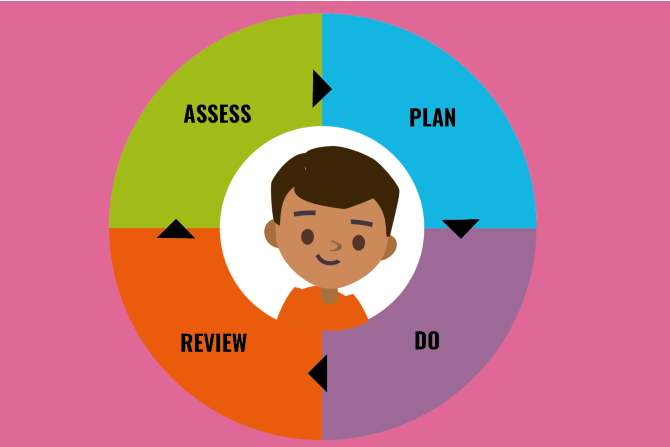This section considers how best to support young people with Social, Emotional and Mental Health (SEMH) Needs to be included in school.
Social, Emotional, and Mental health (SEMH) needs in young people can be complex as they are often the result of an interaction between individuals, the environment and the young person’s own genetics. This can lead to unwanted or difficult to understand behaviours which cause concern in schools.
It is important that any behaviour causing concern is understood as an indication of an underlying unmet social, emotional, or mental health need and addressed accordingly. It is always worth considering the extent to which communication, language and/or learning needs may be a contributing factor. Please refer to the Learning and Cognition and Communication and Interaction sections for more information.
Examples of indicators of unmet SEMH needs can include:
- Signs of emotional distress including self-harm
- Displaying behaviour that has disruptive effects
- Ongoing friendship issues
- Conflict with peers and adults
- Reports of bullying
- Withdrawal and avoidant behaviours
- Any significant changes in behaviour
- Physical symptoms
All challenging behaviour does not necessarily mean that the young person has SEN.
Experiencing a distressing life event such as bereavement is not Special Educational Need although it may be a context which contributes towards future difficulties. Please refer to the local offer for organisations which can support and offer guidance in the event of such events.
Sometimes events happen which impact upon the wider school community. These are known as Critical Incidents and support is available from the Educational Psychology Service.



